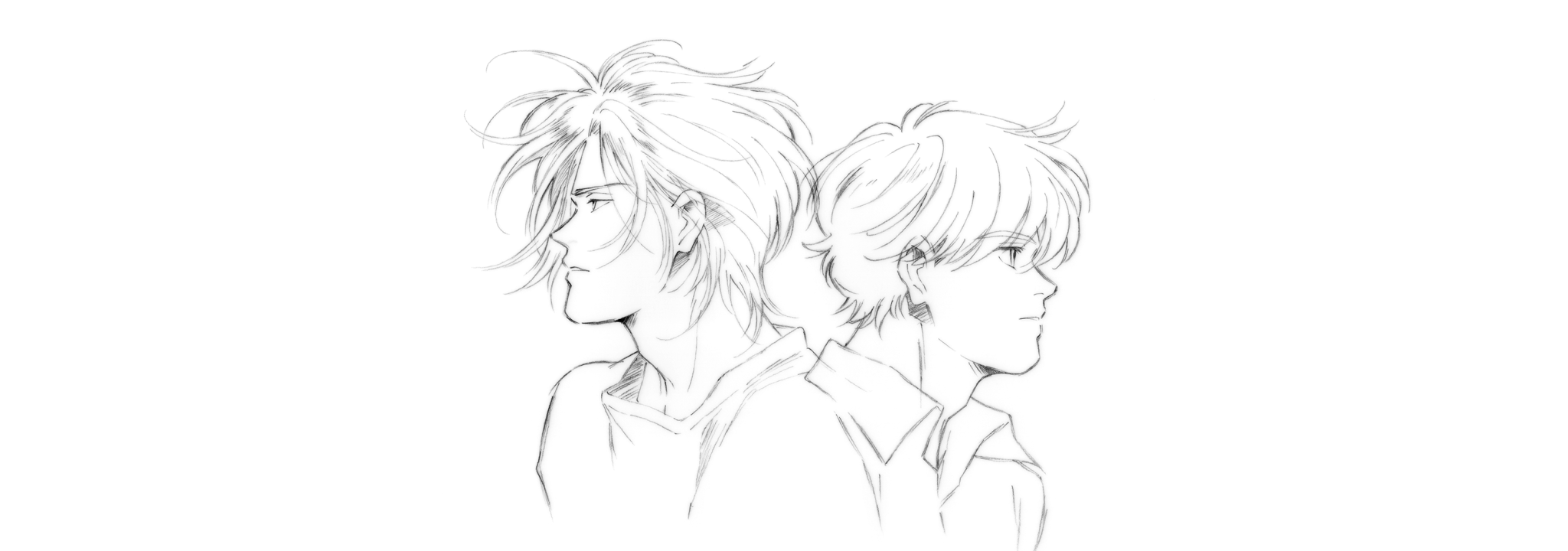Different worlds: Eiji (3)
Originally posted on 19 December 2019 in Turkish here.
This is the part where things get complicated. Eiji will discover the true extent of Ash’s solitude and try to save him from a fatalistic mindset.
Like I mentioned in the other meta, Ash doesn’t want to kill. On the other hand, he shows no mercy to those who sold their friends out to Arthur. Or let me rephase that: Ash can’t take the risk of showing mercy to these spineless cowards who indirectly caused members of his gang to be killed. In the meantime, Eiji more or less knows what Ash is up to until late at night. He pieces together the bits he overheard Ash tell his gang members and the news about gang violence. Still, Eiji doesn’t judge him without hearing his side of the story. Instead he calmly asks him about what is going on.
Eiji gives Ash an opportunity to explain himself first. When Ash brushes him off, he points out the blood stain on his t-shirt, making it clear that he wants an explanation. He shows Ash the article on New York Times and asks him “Did you do this?” Then he softly adds “I don’t want to believe it…” This last sentence serves to make Ash understand that Eiji’s disappointed in him. Yeah, that’s just how good Eiji is at expressing his emotions.
Ash, on the other hand, is already feeling guilty about the lives he took, so being confronted about it makes him angry and defensive. He brazenly tells Eiji “And so what?” I think Ash is trying to act all nonchalant about it because he’s trying to convince himself that he did the right thing. But Eiji doesn’t know what to make of this sudden shift in attitude because just a few days ago he witnessed the extent of Ash’s trauma with killing when Ash cried his heart out on his lap. So Eiji gets angry because he’s scared. He wanted to protect Ash’s soul but now he’s scared that he has already lost him for good. Fueled by disappointment, his next remark hits home: “You now are not you! You’re not the Ash that I and Skip and Shorter knew so well!”
Remember the part where Eiji was thinking to himself that he feared Ash was slowly drifting away from him even when they were so close? This is the first time Eiji voices that fear, which leads Ash to conclude that Eiji started seeing him differently than before. And that thought is enough to make him panic because Ash always took consolation from the fact that, in Eiji’s eyes, he was just a teenager, not a cold-blooded murderer (although he just called himself a murderer in front of Eiji).
Seeing Ash storm out of the apartment, Eiji regrets his words immediately. He also feels guilty about defending others and telling Ash that he wouldn’t understand the feelings of the “have-nots” while he failed to understand Ash’s feelings in the first place. The last thing Ash said before he left the apartment keeps echoing in his mind: “I never ever wanted to be exceptional in my whole life!”
I assume Eiji then spent a sleepless night thinking things over and followed the logic I explained here, which lead him to look at things differently: Ash’s actions aren’t always dictated by his will or desires. He does certain things not because he wants to but because he has to, because “his world” compels him to. So Eiji decides to go and apologize to Ash as he thinks he hurt him while all he intended to do was to warn him. On the other hand, Ash probably thinks he lost Eiji for good after that fight like I explained in this meta. But it’s not like this was something he didn’t expect.
The look on Ash’s face here is just so raw… And this scene is proof enough that he didn’t believe Eiji when he said he would stay with him forever just the night before. For Ash, that was just an empty promise made on the spur of the moment by an innocent boy who didn’t belong in his world. But like everything else with Eiji, it was meant well.
Ash was ashamed of what he did and wanted to protect Eiji, so he didn’t tell him what he was up to, but of course he didn’t expect Eiji to remain clueless. That’s why I think it didn’t come as a surprise to Ash when Eiji wanted to confront him about the killings. But when Eiji outright tells him that his talents and gifts (which are nothing but a curse to Ash) make him exceptional, Ash is deeply hurt. Before, Ash always knew that Eiji was on his side even if he didn’t understand Ash’s feelings. Not this time. Ash realizes that Eiji’s not with him on this one and that realization makes him feel very lonely. That’s why he goes to the library. Ash turns to books when he has no one else. It’s as if the library is a reflection of his inner self.
The morning after the fight, Eiji asks Bones and Kong where Ash might be. They tell him, “The boss likes to come to the library when he wants to be alone.” Actually, it’s the other way around. Ash comes to the library because he feels alone. We know what went through Eiji’s mind when he found Ash reading on his own in the library because he tells Ibe-san at the end of the story. In that moment it’s like everything falls into place and Eiji makes up his mind.


